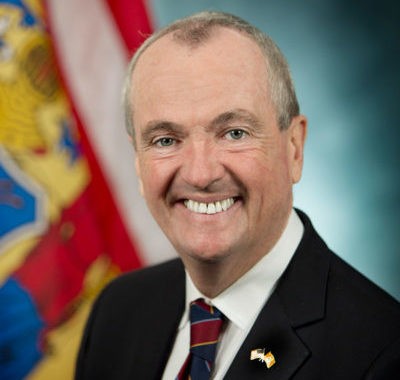WOODBRIDGE – Governor Phil Murphy signed the Fiscal Year 2022 (FY 2022) Appropriations Act into law June 29, working in partnership with the Legislature to develop a budget that meets the State’s current and future obligations, makes New Jersey more affordable for working and middle-class families, provides record investments in education, supports an inclusive pandemic recovery, and invests in small businesses and long-term economic growth.
“This year’s budget represents the culmination of a four-year journey to fix many longstanding problems in New Jersey,” said Governor Murphy. “This is a budget that invests in our middle-class and working families – supporting both those building their families and careers and those who are living out their richly-deserved retirements. It also puts a world-class education within reach for all while tackling our age-old property tax problem – ensuring a stronger, fairer, and healthier future for the generation born and reared in the shadow of an unprecedented pandemic.”
“Together, we are providing broad and equitable pre-K through higher education opportunities for more of our students, making sure every child in New Jersey has health care, delivering substantial tax relief to working and middle-class families, investing real dollars to make the dream of homeownership an affordable reality, helping seniors remain in their communities long into their golden years, and providing hundreds of millions in relief for small businesses,” continued Governor Murphy.
“This budget also places a premium on fiscal responsibility – making good on our promise to public employees by providing above and beyond the full pension payment for the first time in a quarter of a century, responsibly setting aside funds to repay debt, and making New Jersey more resilient to weather future health emergencies.”
The Governor was joined by Senate President Sweeney, Speaker Coughlin, Lieutenant Governor Oliver, State Treasurer Muoio, Senate Budget Chair Sarlo, Assembly Budget Chair Pintor Marin, and Woodbridge Mayor John McCormac at Ross Street School #11 in Woodbridge where he signed the Appropriations Act to highlight its unprecedented investment in public education. As promised, Governor Murphy reversed years of chronic underfunding of public education, increasing direct pre-K through grade 12 spending statewide by nearly $1.5 billion over the last four years and putting New Jersey on the path to fully funding the school funding formula that has been upheld as constitutional.
The FY 2022 budget increases formula aid by nearly $750 million and Woodbridge is one of hundreds of school districts that have benefitted from the Governor’s multi-year increase in funding. The district will receive $18 million in additional school funding next year through this budget, more than twice what it was in FY 2018. The budget also invests an additional $50 million in pre-K, including $26 million for new programs, and provides an additional $125 million for Extraordinary Special Education Aid, a priority of the Senate President.
“This fiscal year budget shows our shared values of dignity and respect for human life in the face of adversity and collective commitment to making New Jersey the best place to live, work, be educated, and retire in the nation,” said Lt. Governor Sheila Oliver, who serves as Commissioner of the Department of Community Affairs. “We are paying down the state’s long-ignored obligations while continuing to focus on building a strong middle class and robust economy that everyone can participate in and benefit from. Together with the Legislature, we’ve achieved what they said was unachievable.”
The budget allocates over $4.2 billion to improve the State’s long-term fiscal health and substantially reduce outstanding debt by setting aside $3.7 billion for the Debt Defeasance and Prevention Fund Established through companion legislation. $2.5 billion of this fund will go towards retiring State debt, which is expected to generate savings of over half a billion dollars. The other $1.2 billion will support capital construction that replaces current or future debt issuances.
The budget also includes a record total payment of $6.9 billion to the State Pension Fund, which includes the full $6.2 billion pension contribution for FY22 (including Lottery proceeds) and an additional $505 million pre-payment towards subsequent years. The State had been on a 1/10 ramp up plan as it worked its way up to meeting the full Actuarially Required Contribution and was initially slated to contribute 90 percent of the full pension contribution this year.
In February, the Governor proposed accelerating the “catch-up” plan and making the first full pension payment since FY 1996. The additional $505 million pre-payment will offset the increase that was expected as result of the planned reduction in the assumed rate-of-return for FY 2023 and allow the State to make level pension contributions going forward. Combined, making the full payment and the pre-payment in FY 2022 will save the State more than $1.5 billion over 30 years and put an end to years of unmet obligations and substantial growth in the unfunded liability.
The budget also includes significant direct appropriation investments, including $200 million for the Offshore Wind Port and $200 million for current Schools Development Authority (SDA) projects to reduce debt issuance; $75 million for the SDA’s Capital Maintenance and Emergent Needs Grant program; $60 million to support the continuation of the Drinking Water and Clean Water Infrastructure Fund; and $93.6 million for critical capital improvements, including emergent life safety and IT projects. These proposals will reduce the State’s borrowing needs in the long-term.


